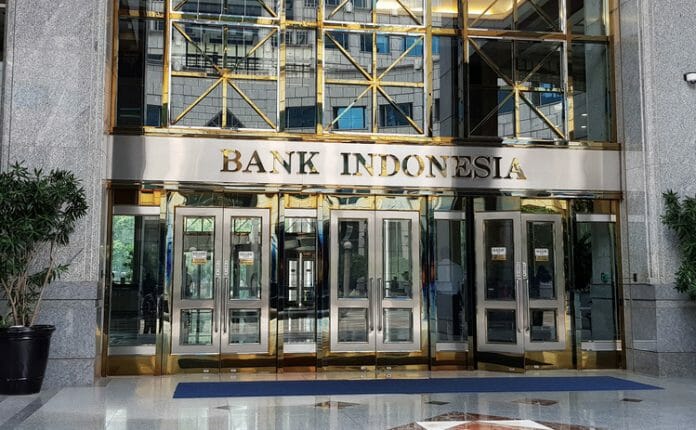Indonesia’s central bank unexpectedly raised borrowing costs for the first time since 2018 as policymakers conceded that inflation pressures have risen, revising their price forecasts higher.
Bank Indonesia (BI) raised its seven-day reverse repurchase rate by 25 basis points to 3.75% on Tuesday, a move predicted by only seven of 31 economists in a Bloomberg survey. BI raised its forecasts for headline and core inflation this year and said it sees risks that average price gains could exceed the 2%-4% target not just this year but also in 2023.
“This decision is a pre-emptive and forward-looking step to mitigate the risk of rising core inflation and inflation expectations due to the increase in non-subsidised fuel prices and volatile food inflation, as well as to strengthen the rupiah exchange rate stabilisation policy amid high global uncertainty and increasingly strong domestic economic growth,” Governor Perry Warjiyo said at a live-streamed briefing.
Bloomberg cited with Tuesday’s move, Indonesia joined peers in raising rates as the policy tightening in the US and a stronger dollar rattled broader emerging markets. The move is an about-face for Warjiyo who as recently as last Thursday had kept his calm, saying he saw no need to rush into hiking rates and risk derailing the economy’s recovery.
The Indonesian rupiah strengthened as much as 0.4% to 14,825 per dollar following the surprise hike, erasing an earlier loss that saw the currency trade at its weakest level in two weeks. The benchmark stock index rose 0.8%.
BI sees core inflation accelerating to 4.15% this year from a previous projection that it will stay within the 2%-4% band and expects headline inflation to hit 5.24% from a prior range of 4.5%-4.6%. BI is seeing evidence of second-round effects, Warjiyo said.
At the same time, the central bank said economic recovery is solid enough to absorb the impact of the rate increase, with gross domestic product growth this quarter seen accelerating to 5.5%.
Buying time
The nation’s policymakers have been able to buy themselves time by using the reserve requirement and bond sales to mop up excess liquidity in the financial system. The government has also spent record amounts to keep energy costs artificially low.
That policy space narrowed after President Joko Widodo indicated last week that the state budget could no longer sustain heavy subsidies. Prices of the most widely used fuels could be raised, although details on the size of the increase and timing were unclear.
Even with subsidies, headline inflation hit a seven-year high of 4.9% in July, while government-administered items like fuel, electricity, and transport fares saw prices climb at a faster pace of 6.5%. Core inflation — the central bank’s preferred metric — stood at a more modest 2.86%.
“We still see that BI has more room for rate hikes, up to 100 basis points this year,” Irman Faiz, an economist at Bank Danamon Indonesia, said in a note after the decision. “There’s a risk for BI to raise policy rate higher than our expectation, in case inflation pressure accelerate faster,” he said.









